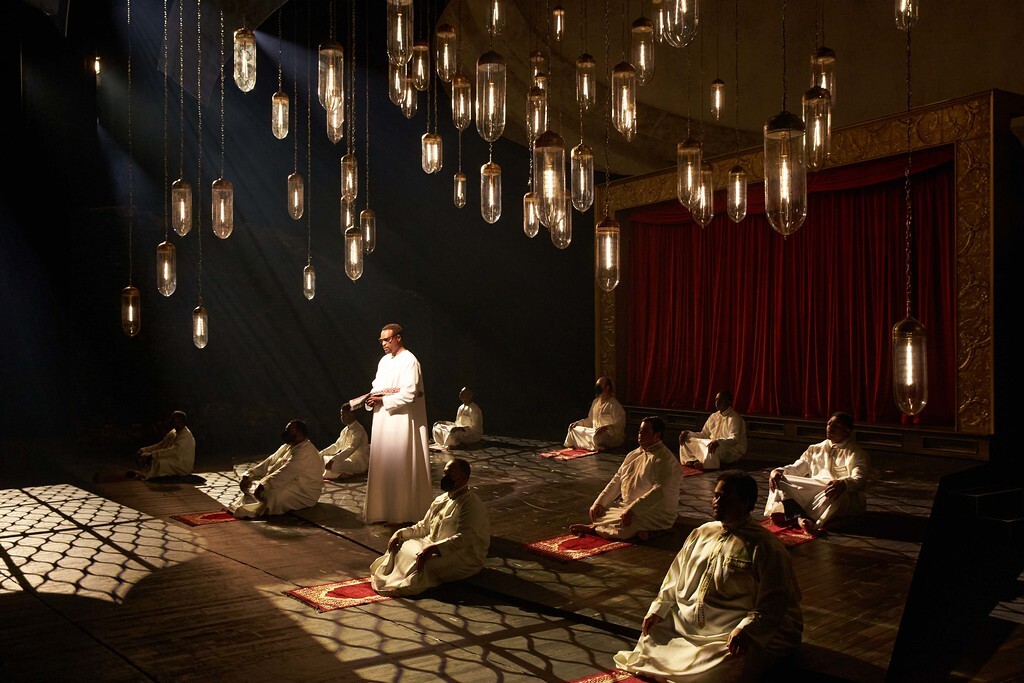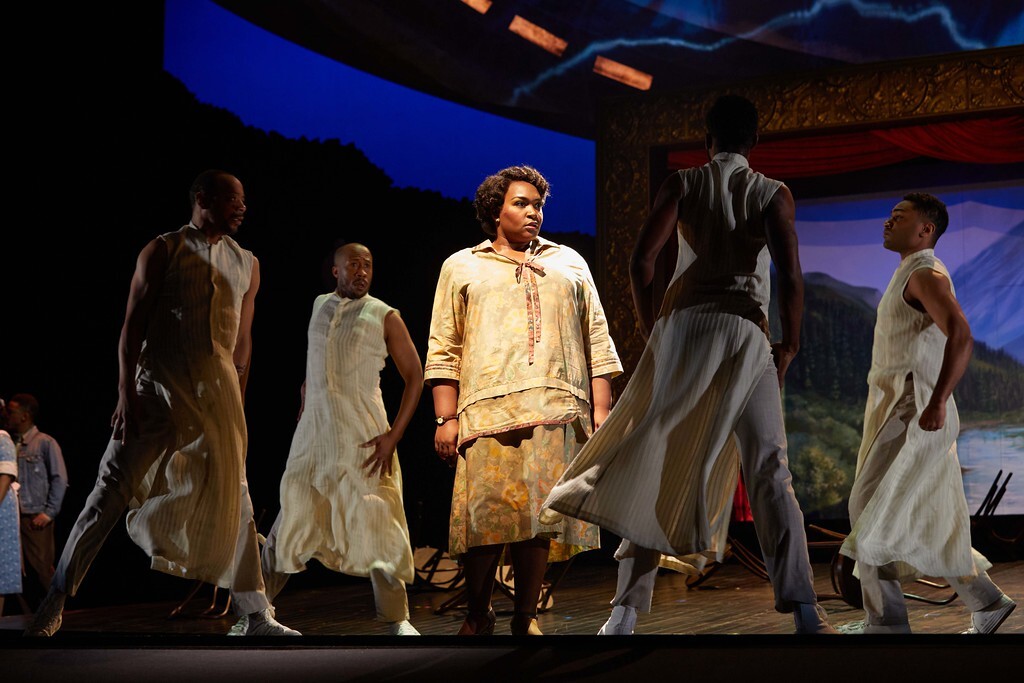A Stunning Musical Depiction of Civil Rights History’s Most Complex Man
Review of X: The Life and Times of Malcolm X at Seattle Opera
Written by TeenTix Newsroom Writer Sophia Hu and edited by Teen Editorial Staff Member Kyle Gerstel

“We are a nation trapped inside a nation. We are a nation dying to be born,” Malcolm X sings, and thus begins a tale of freedom, hatred, and martyrdom, all performed by the talented and dynamic performers of Seattle Opera at McCaw Hall. X: The Life and Times of Malcolm X is a three-hour-long journey, taking audiences through the 1900s from the perspective of the marginalized Black community, facing crushing oppression and horrific violence. It stars Kenneth Kellogg in the titular role of a complex leader during the Civil Rights Movement. The opera tells an intricate story that everybody needs to hear.
Act one opens with the characters waiting for Reverend Earl Little, Malcolm’s father. While they wait under high stress, the characters inform us of their constant fears of violence and murder by white supremacist groups as the names of people who had to pay for this hatred and racism with their lives are projected on the ceiling, scrolling quickly to showcase the immense scale of this tragedy with a powerful impact. In this act, Leah Hawkins, who plays Malcolm’s mother, Louise, is featured in a stunning aria about the haunting attacks she fears. After this, it is revealed that Earl Little was killed, leading to the mental ruination of Louise. Malcolm is subsequently brought to Boston by his older sister, where he gets involved in a robbery and is arrested.
In act two, Malcolm converts to Islam, where he becomes Malcolm X (the X stands for “what was lost”), and from there gains influence as a speaker and activist. It is from this act that some of the more inspiring and iconic lines come, such as when Malcolm speaks about the cost of freedom and the actions required to attain it. These speeches masterfully showcase the lyricism of this opera, with impactful lines such as “America’s climate of hate is coming on itself” and “To get freedom, we’re ready to die.”

Act three is full of turmoil: warnings from the leader of the Nation of Islam, threats, and violence. It is in this act that Malcolm X experiences his pivotal pilgrimage to Mecca in a gorgeous scene with floating lanterns and warm light, and becomes el-Hajj Malik el-Shabazz. After his return, he shares a couple more speeches before his assassination at the Audobon Ballroom during a speech.
Musically, X is very unique. It features an avant-garde jazz style and a wide vocal range from performers. The instrumental music is oftentimes dissonant, which leads to feelings of unrest. However, the music tends to be too loud, oftentimes overpowering the voices of the cast. Despite this, the music is effectively utilized to communicate the emotion of each scene.
X is most certainly not lacking visually. All the characters are dressed in period-appropriate clothing, and important characters often wear a distinguishing accessory such as the unmistakable cap worn by Elijah Muhammad, the leader of the Nation of Islam, or the pink dress worn by Betty, Malcolm X’s wife. Images are often projected onto the stage, such as the list of people who have been murdered in acts of racism. Dancers also provide visual emphasis in certain scenes.
While Malcolm X is clearly important in this opera, the title of this piece is somewhat misleading. Even if the opera follows the life of Malcolm X, the focus of the piece is less on him as an individual and more on the community of people struggling and living through this dark period. This piece is about more than just the man; it is about his impact. It is not his life that carries the most influence but his subsequent martyrdom, which inspired many more to come. It is the “times” of Malcolm X that this piece centers around, not the “life.”

The source material for this opera is heavy and rife with complexity. It is hard to condense 40 years of life, centuries of oppression, thousands of voices each with their own perspective, and an accurate representation of Islam all in under three hours. This piece attempts to cover so much ground, so much time, and so many emotions, but there just isn’t enough space to give each topic the spotlight it deserves. The complexity and nuance in Malcolm X's life are hard to capture in just one opera, and the piece tries to accomplish too much. However, for the time that it was given, X still manages to effectively leave a lasting impact.
Stories of hatred are so important for us to witness, and to experience from a different point of view, through pieces like this. X shares these stories, serving as a critical piece of art for our community.
Lead Image Credit: Kenneth Kellogg (Malcolm X) in "X: The Life and Times of Malcolm X" at Seattle Opera. Credit: Philip Newton.
The TeenTix Newsroom is a group of teen writers led by the Teen Editorial Staff. For each review, Newsroom writers work individually with a teen editor to polish their writing for publication. The Teen Editorial Staff is made up of 5 teens who curate the review portion of the TeenTix blog. More information about the Teen Editorial Staff can be found HERE.
The TeenTix Press Corps promotes critical thinking, communication, and information literacy through criticism and journalism practice for teens. For more information about the Press Corps program see HERE.

